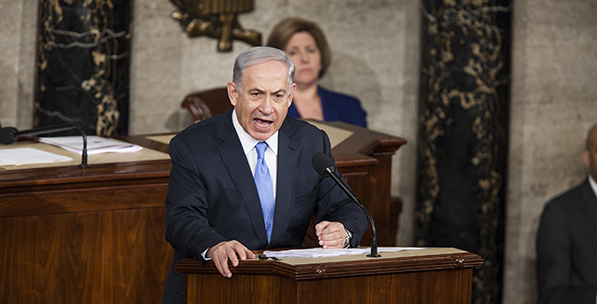For years, critics of Washington's Middle East policy, which prioritizes Israel's interests above all else and supports authoritarian regimes across the region, have expressed the view that regional players should govern themselves. The idea of a new regional order was embraced by a range of groups including Islamists and leftists who regarded Israeli expansionism as the single greatest challenge before them. As such, the issue was a prominent feature on the agenda of all ideological movements from pan-Arabism to Islamism.
The Palestinian cause and Israeli aggression were at the heart of both former Egyptian President Gamal Abdel Nasser's popularity and the Iranian revolution's efforts to take down the status quo. Over time, regional governments came to terms with Israel's involvement in Middle Eastern affairs. At the same time, a number of U.S. president from both parties launched failed attempts at Middle East peace. Against the backdrop of these developments, post-9/11 wars in the region, i.e., the U.S. occupation of Afghanistan and Iraq, and the Arab Spring's abrupt end not only led to the collapse of the post-WWI order, but also provided additional room for Israeli maneuvers. While the Israeli government was concerned in the early months of the Arab Spring about the demise of then Egyptian President Hosni Mubarak, things got a lot better for Tel Aviv once the Arab Spring turned cold. Today, Israel is no longer troubled by peace processes and nor they have no trouble building new settlements on Palestinian land. Quite the contrary, they have developed the capacity to publicly disagree with the administration of U.S. President Barack Obama over regional issues. It was noteworthy, for instance, that Israeli Prime Minister Benjamin Netanyahu stressed his country's concerns over rapprochement with Iran during his address to a special joint meeting of U.S. Congress, which was scheduled despite pressures from the White House. Just two weeks ahead of Israel's March 17 elections, Netanyahu did not meet any White House officials, yet nonetheless pointed out that it would be wrong to side with Iran in order to address the Islamic State of Iraq and al-Sham (ISIS) threat. Adopting an interesting maxim - "the enemy of your enemy might still be your enemy" - Netanyahu claimed that dialogue with Tehran will result in the country's production of nuclear weapons. Meanwhile, Obama's critical stance on the address suggests that U.S.-Israeli relations have entered a new stage with regard to regional policies. It has been a thinly-veiled secret that Obama was willing to reach an agreement with Iran to score some points - an effort that met fierce opposition from the Israeli government. Although Netanyahu's latest criticism about the Obama administration's take on Iran means that the next two years will be less than pleasant, there is no reason to expect any lack of U.S. support for Israel on national defense and Palestine. After all, Congress just approved a $3 billion military aid package for Israel. The White House, however, will presumably differ with Israel on a range of issues including dialogue with Tehran.
Here is why the above assessment matters. The possibility to build a new regional order hinges on two main dynamics. First, there is the power struggle between Iran, Saudi Arabia, Turkey and Egypt and changes in their bilateral relations. The expansion of Iran's influence in Arab capitals pushes Riyadh to revise its foreign policy and the rapprochement between Saudi Arabia and Turkey represents a great example to that effect. Second, it remains to be seen what the United States and Israel will share with regional powers in specific areas. Iranian Major General Qasem Soleimani's public relations show with his involvement in Syria and Iraq leaves not only Israel, but also the Gulf concerned. Just as the anti-ISIS campaign has led to a veiled alliance between Washington and Tehran, Iran's growing influence also triggers cooperation between Israel and the Gulf. In the foreseeable future, the region will set the sta








